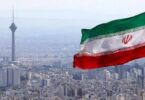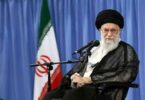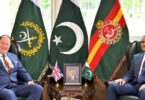F.P. Report
WASHINGTON: Good morning. I’d like to welcome our witnesses here today: Sasha Baker, Deputy Under Secretary of Defense for Policy, General Frank McKenzie, Commander, U.S. Central Command, and General Stephen Townsend, Commander, U.S. Africa Command. I want to thank them for their time today as they provide their views, which are instrumental to our evaluation of the security situations in the U.S. Central Command (CENTCOM) and U.S. Africa Command (AFRICOM) regions.
Secretary of Defense Lloyd Austin is expected to release a new National Defense Strategy soon, which he has indicated will emphasize integrated deterrence, a concept that includes using all instruments of our national power and the essential capabilities and capacity of our partners and allies. It is absolutely clear that re-engaging and restoring our international partnerships and alliances and strengthening democratic principles across the globe is crucial to the core concept of defending Americans. We have seen the power and value of our partnerships and alliances on display as the Biden Administration has led the cohesive and coordinated global effort to place crippling sanctions and restrictions on Russia for its unjust invasion of Ukraine. Strengthening and harnessing our partnerships and alliances is also crucial outside of Europe to achieve meet our objectives in the CENTCOM and AFRICOM regions. Today, I’d like to better understand this Administration’s priorities regarding policies and investments in the CENTCOM and AFRICOM regions, including how they will fit within the global strategy that seeks to compete with Russia and China, while continuing to prevent transnational threats from the Islamic State (ISIS), al-Qaida, and other terrorist groups. How does the Department plan to manage risk and strike the appropriate balance to address the threat of instability in these regions?
In AFRICOM, the United States faces several pressing issues. Extremist organizations continue to proliferate across the continent, spreading violence and destabilizing countries in the Sahel and North-, West-, and East Africa. Partner countries are often unable to deal with such problems without assistance.
The Department engages in Africa to help partners and allies improve their security and fight extremism via security cooperation, rule-of-law human rights training, joint counterterrorism efforts, capacity building, and support to State Department. But, in recent years, investment in Africa has been reduced. I’d like to know more from our witnesses about how the Department intends to address the threats in the region and what resourcing is required to do so.
The United States is also competing for influence in Africa with Russia and China. Russia is leveraging Cold War-era relationships to sell arms and seek support for its anti-U.S. and anti-Western worldview. It funds “no questions asked” mercenaries like the Wagner Group, promising to help provide security in countries, but allowing – or possibly actively participating in – atrocities. China’s presence and interest in Africa has been predominantly economic, but it now has a military base in Djibouti and may be seeking one on the West African coast that could have increase its ability to project power into the Atlantic. Its Belt and Road Initiative is well developed in Africa, and its lack of interest in democratic values colors its engagement and is especially harmful to countries still building democratic norms and traditions. While not a discrete Department of Defense issue, I look forward to hearing the witnesses’ views on how we can best compete with both China and Russia in this context.
I would also note that the Department finally delivered the report on the Manda Bay attack last week. We need to learn from this attack and make changes to prevent such losses in the future. I look forward to discussing this issue with the Department today.
We also need to better understand the future of the fight against ISIS in the CENTCOM region, which continues to pose an insurgent threat in Iraq and Syria. Last year, the Biden Administration announced the end of the U.S. combat mission in Iraq, and that support there would be focused on training and equipping our partners in the Iraqi security forces and Kurdish Peshmerga. We need to understand how that mission is taking shape and the resources needed. We have seen the threat that ISIS continues to pose from Syria, having recently organized an attack on an ISIS detention facility run by the Syrian Democratic Forces. What is the plan to deal with the thousands of ISIS fighters currently jailed in northeast Syria, and to address the thousands of internally displaced persons and ISIS families at al Hol and other refugee camps? What can the Department be doing to prevent the next generation of ISIS from incubating in these facilities?
Throughout the region, Iran-supported militias are increasingly erratic and less constrained. We have seen that in the form of increased drone and rocket attacks on US and partner forces in Iraq and Syria. How are we working with our partners to increase our force-protection and inhibit attacks that make it harder to complete the mission? Further, what is the Administration’s plan to deter Iranian aggression in the region, and how does that balance with efforts to return to the JCPOA? Just this past weekend, Iran launched ballistic missiles into Erbil. Iran’s continued regional belligerence and flagrant violations of the national sovereignty of its neighbors proves that Iran must never be allowed to obtain a nuclear weapon – and the JCPOA remains the best option to achieve that. I’d like to know what role the Department will play within the Administration’s plans to defend American interests in the region while avoiding escalation, and what that may mean for our posture and presence in the Gulf.
As we look to Afghanistan, our goal in the region has always been to prevent transnational terrorists from launching an attack against the United States or our allies. Now that it has been over six months since our military left Afghanistan, I want to better understand how we are monitoring the situation in Afghanistan, where we are currently doing that from, and what plans are there to modify the mission going forward. Crucially, I want to remember and recognize the service of the over 800,000 men and women who served in Afghanistan over the last 20 years, honor the 2,461 who made the ultimate sacrifice along with the over 20,000 who bear the physical wounds of war, and those who bear the unseen wounds of war.
Finally, the U.S. military’s commitment to protecting innocent life must be ironclad. The Department must have credible processes to investigate civilian casualty reports and to internalize lessons learned, and it must address processes to mitigate civilian harm. Concerns about these processes are acute in the CENTCOM area of responsibility. A Rand study issued earlier this year, which was required by the FY20 NDAA, offered recommendations to the way the Department prevents, investigates, and addresses civilian harm. Secretary Austin has also required a review led by Undersecretary of Defense Colin Kahl. I am committed to working with the Department to effect necessary reforms and to ensure we are doing everything possible to protect civilians.
To conclude, I look forward to learning more about plans for the Department’s presence and posture in CENTCOM and AFRICOM, how that posture manages risk, meets the threats, and coincides with policy objectives, and how regional decisions affect and comport with our global requirements. Timely and comprehensive assessments from our combatant commanders and policy officials are fundamental to this committee’s work to provide necessary resources to the Department.
Thank you and I look forward to the witnesses’ testimony.






